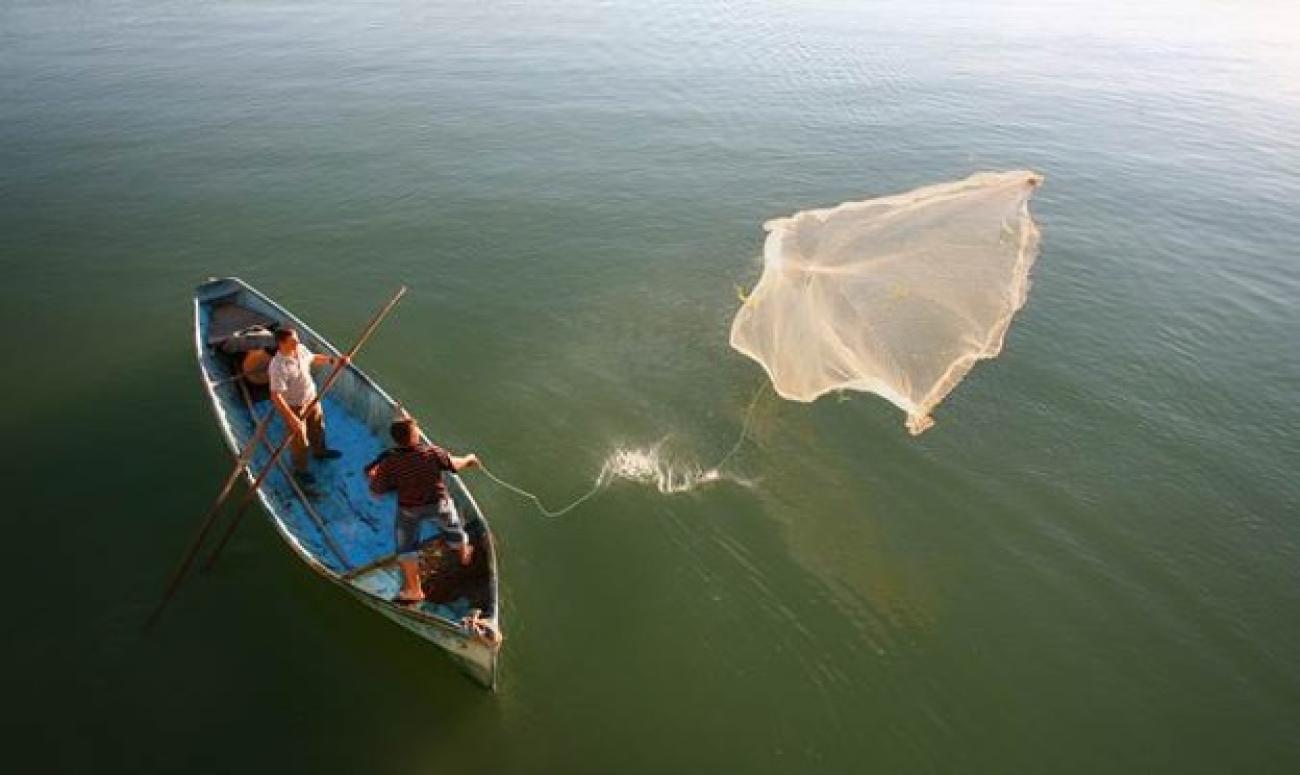Sustainable fishing receives strong support in the Mediterranean and the Black Sea

FAO continues work on developing blue economy pathways through protecting marine biodiversity.
Today, the world is celebrating the International Day for the Fight against Illegal, Unreported and Unregulated Fishing. There is even more to celebrate, as the 58th Council of the Global Environment Facility (GEF) has now endorsed financial support to two FAO projects on fisheries and ecosystem-based management for the Black Sea and Mediterranean.
Both projects include ad-hoc components to curb illegal, unreported, and unregulated fishing in the Mediterranean and the Black Sea. They are aimed at underpinning the work of the General Fisheries Commission for the Mediterranean (GFCM) to reverse the overexploitation of select commercial fisheries by supporting riparian countries in developing blue economy pathways, among others, through an ecosystem-based management approach.
“Illegal, unreported, and unregulated fishing remains one of the most pressing drivers that affects marine biodiversity both in the Mediterranean and Black Sea regions adversely. This makes it critical to further develop regional cooperation in the context of the GFCM with the aim of targeting current threats and challenges faced by the regional fisheries,” said Haydar Fersoy, FAO senior fishery officer.
While for a long time the fisheries and aquaculture sectors have been providing considerable social and economic benefits to this area, targeted interventions, like those that have been approved by the GEF, are key to tap into the full potential that these sectors have. Most importantly, these measures ensure that they remain profitable, resilient, and environment friendly. This is where the expected outcomes relating to reducing threats stemming from illegal, unreported, and unregulated fishing become a cornerstone of the projects.
“In this regard, the implementation of GEF-funded projects supporting sustainable management, development, and conservation of fisheries in these two seas is of high importance. This will help the littoral states apply ecosystem-based management, which will in turn contribute to those efforts of FAO and GFCM to curb illegal, unreported, and unregulated fishing,” Fersoy added.
The Mediterranean Sea is known as a hotspot of marine biodiversity with over 17 000 marine species. The Black Sea, on the other hand, has been experiencing a significant level of ecosystem degradation due to an overabundance of nutrients, known as accumulated nutrient loading, which has adversely affected both the marine ecosystems and its living marine resources. As the two seas have most of their commercial fish stocks shared among littoral states, close cooperation is essential for their effective management, including common strategies to fight for sustainable fishing.
The two projects will bring together Georgia, Turkey, and Ukraine in the Black Sea, and Albania, Algeria, Lebanon, Libya, Montenegro, Morocco, Tunisia, and Turkey in the Mediterranean Sea. Activities are expected to start in 2021 with a duration of two years.
To strengthen the management system of the General Fisheries Commission for the Mediterranean, both projects will identify the main issues of requiring technical support, upscale regional fisheries networks, as well as promote and disseminate sustainable management practices with specific focus on small-scale fisheries and value chains.
Designating a day of awareness for improper fishing
The United Nations General Assembly declared 5 June the International Day for the Fight against Illegal, Unreported and Unregulated Fishing in 2017, acting on an initial proposal from the General Fisheries Commission for the Mediterranean. Spearheaded by FAO, this event aims to raise awareness among the general public on the pressing need to tackle the negative impacts of illegal, unreported, and unregulated fishing on living marine resources and national markets.
5 June was symbolically chosen as it marks the day when FAO’s Agreement on Port State Measures entered into force in 2009 as the first, and currently only, global accord specialized in addressing the fight against illegal, unreported, and unregulated fishing. From Europe, signatory parties include Albania, Denmark, the European Union, France, Montenegro, Norway, and Turkey.



